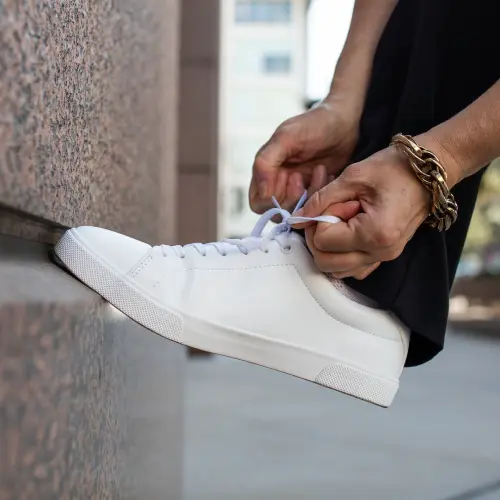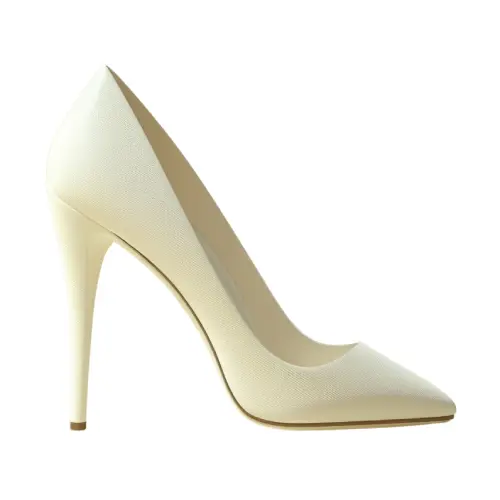Footwear is more than just a fashion choice—it’s a crucial part of your everyday comfort, health, and confidence. The shoes you wear directly affect your posture, energy levels, and overall well-being. Whether it's stylish boots, sleek heels, or everyday sneakers, the right pair of shoes can enhance your look and your mood. But the real value of good footwear lies in its ability to support your body throughout the day. It’s not just about appearance; it’s about how you feel from the ground up.
Poorly designed or ill-fitting footwear can lead to serious issues like back pain, foot injuries, and poor circulation. On the other hand, well-constructed shoes with proper arch support, breathable materials, and cushioned soles can make long days easier and more enjoyable. Your footwear needs to fit your lifestyle, your routine, and your body’s specific needs. When comfort meets design, you gain not just support, but a boost in confidence and productivity.

Choosing the right footwear is not just about matching your outfit—it's about ensuring your feet are protected and properly aligned. When you prioritize comfort, your daily routine becomes smoother. You don’t worry about foot fatigue, blisters, or pressure pain. Instead, you feel light, stable, and ready to take on your tasks—whether it's a long day at work, a casual outing, or a fitness session. That’s what great footwear does: it supports your movement and enhances your style without compromise.
Just like taking care of your body, maintaining your footwear with small daily habits extends their life and keeps your feet healthy. Start by cleaning off dirt after every wear—especially on soles and fabric. Store shoes in a cool, dry place to prevent odor, mold, or shape distortion. Rotate between pairs to give each one time to breathe and recover.Choosing the right footwear means understanding your lifestyle, foot shape, and usage needs. Athletic shoes are built for performance, with cushioning and support designed for impact.
Choose the right footwear for the activity—running shoes for workouts, supportive soles for long walks, and open footwear to let your feet relax. Use insoles or arch supports if needed to prevent long-term discomfort or injury. And don’t forget to inspect your shoes for wear and tear, replacing worn-out pairs to protect your posture and style. Formal shoes offer structure, polish, and classic appeal for professional or special settings.
"Healthy steps begin with the right footwear—clean, comfortable, and ready to go wherever life takes you."
Maintaining your shoes is just as important as choosing the right pair. Regularly cleaning your footwear prevents damage and extends its lifespan. Using proper inserts or orthotics can provide added support for those with foot conditions. Rotating between pairs allows shoes to breathe and reduces wear. Drying wet shoes naturally and storing them properly keeps them in shape. These small acts of care ensure that your shoes stay as reliable as the day you bought them.
1. Invest in quality shoes
Don’t just buy for looks—choose shoes made with premium materials and thoughtful construction. High-quality footwear offers better cushioning, longer lifespan, and prevents common issues like blisters or joint strain.

2. Always try both shoes
Many people have one foot slightly larger than the other. Always try on both shoes and walk around the store to ensure balance, support, and a natural fit.
3. Break new shoes in slowly
Even the best pair needs time to adjust to your feet. Avoid wearing brand-new shoes for long outings immediately. Instead, wear them indoors or for short trips first, giving the materials time to soften.
4. Use the right shoe for the activity
Each activity—whether it's running, hiking, gym workouts, or formal events—requires specific footwear features. Wearing the wrong shoe can lead to poor performance or even injury.
5. Check for arch support
Flat soles offer no protection to the natural arch of your foot. Shoes with built-in arch support or added insoles reduce foot fatigue, heel pain, and even back discomfort.
6. Replace worn-out shoes
Don’t wait until shoes fall apart. Once the tread wears thin or the inner cushioning flattens, they stop supporting your feet properly. Worn shoes often lead to pain, especially in the knees, hips, and lower back—signaling it's time for a new pair.
7. Keep shoes dry and clean
Moisture from sweat or rain promotes bacteria growth, odor, and fabric breakdown. Dry your shoes naturally (not in direct sun or using heat) and clean them regularly based on material—whether it’s suede, leather, or mesh.
8. Use inserts if needed
If you spend long hours standing or walking, consider orthopedic or gel inserts. These enhance comfort, relieve pressure points, and support your gait.
1. Comfort
Footwear should never cause discomfort. A good pair feels snug but not tight, cushioned but not bulky. It reduces fatigue and prevents common issues like bunions or calluses. Especially for people on their feet all day, comfort is essential—not a luxury.
2. Function
Shoes are tools tailored for specific needs. Wearing sneakers to a formal event or flip-flops for a hike not only looks off but also compromises safety and support. Choose footwear that supports your activity, whether it's performance, leisure, or daily wear.
3. Durability
Shoes made with strong outsoles, reinforced stitching, and breathable yet tough materials last much longer. Durability isn't just about how long they look good—it's about how long they maintain support and safety for your feet across different terrains and weather conditions.
4. Style
Footwear plays a huge role in your overall look and confidence. The right shoes complete your outfit and can make you feel polished, playful, powerful, or casual. Your shoes should reflect your personality and mood—because when you like how you look, you walk differently.
5. Health
Footwear directly affects more than just your feet. Poor support leads to chain reactions—ankle strain, knee pain, hip alignment issues, and even posture problems. Choosing the right footwear is a preventative health decision that supports your whole-body wellness.
Your feet carry you through every moment of your day—so give them the attention and care they deserve. When your footwear fits well, feels good, and functions right, you move with more ease, confidence, and energy. It's more than a style statement—it's a foundation for comfort, health, and personal expression. Investing in the right shoes, maintaining them well, and choosing styles that suit both your lifestyle and your body will reward you for years.




